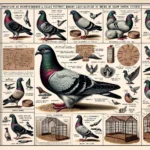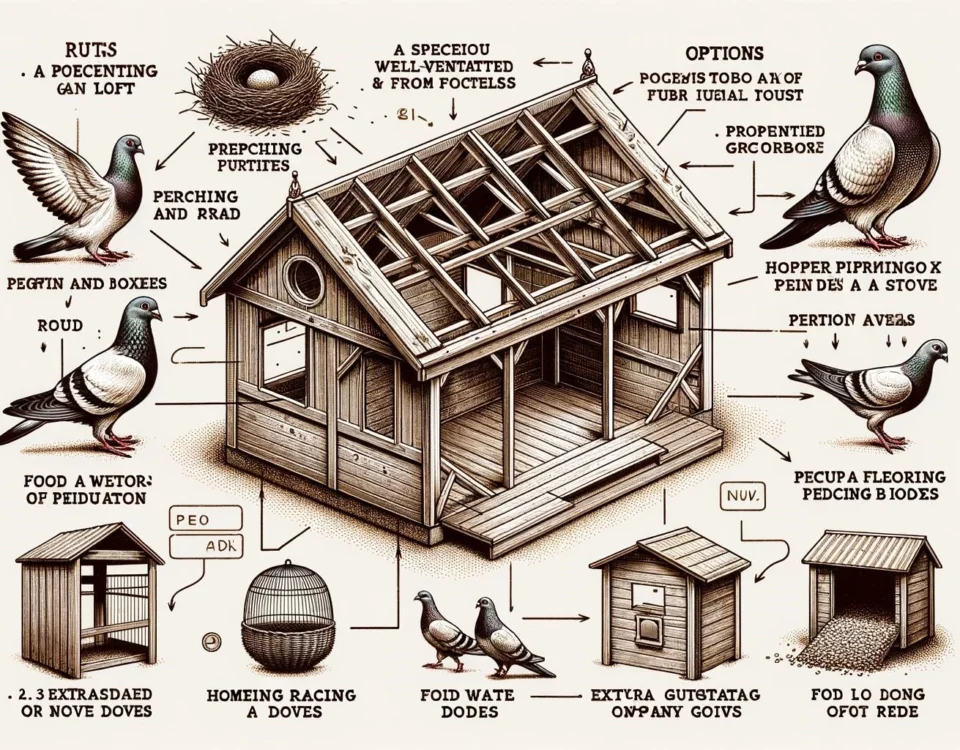Pigeons are ubiquitous in urban areas and can be a source of both admiration and frustration for many people. As such, there are laws and regulations in place in various jurisdictions to address pigeon control, management, and safety concerns. It is important to understand and comply with these laws to ensure the humane treatment of pigeons and the safety of the public.
Key Takeaways
- Feeding pigeons and implementing non-lethal control methods are regulated in various jurisdictions and should be approached responsibly.
- Wild pigeons are not protected by federal law in the United States, allowing for certain control measures.
- The Migratory Bird Treaty Act of 1918 protects migratory birds, including wild pigeons, in the United States.
- Hunting of wild pigeons is regulated by both federal and state laws in the United States.
- Proper habitat modification and deterrents can help control pigeon populations and mitigate related issues.
Pigeon Control and Management Laws
In several countries, including the United States and the United Kingdom, there are laws and regulations that govern the control and management of pigeons. These laws aim to balance public safety concerns with the humane treatment of the birds.
In the United States, while pigeons are not protected by federal law, state and local laws may impose restrictions on feeding pigeons and implementing non-lethal control methods. It is essential to understand and comply with these laws, as violating them may result in fines or other penalties.
The Migratory Bird Treaty Act of 1918 protects migratory birds, including wild pigeons, in the United States. This act makes it illegal to hunt, capture, or kill any migratory bird species without a valid permit. While pigeons are not considered migratory birds, they are often excluded from the protected species list, allowing for certain control measures.
Similarly, in the United Kingdom, the control of feral pigeons and other wild birds is legislated by the Department of Environment, Food and Rural Affairs (DEFRA) under the Wildlife and Countryside Act 1981. Under this act, individuals and organizations are prohibited from killing, injuring, or holding pigeons unless specific exemptions apply.
It is advisable to check with relevant authorities in your jurisdiction to ensure compliance with specific pigeon control and management laws and regulations.
Pigeon Safety Concerns
Pigeons can present safety concerns in urban areas, particularly in large numbers. Their droppings can create unsightly and unsanitary conditions, and their roosting and nesting habits can lead to property damage. Additionally, pigeon droppings can carry certain diseases, although the risk of transmission to humans is generally low.
To address safety concerns related to pigeons, proper habitat modification and deterrents can be implemented. This includes eliminating food, water, and roosting sites, as well as discouraging feeding of pigeons in public areas. Pools of standing water, which pigeons use for watering, should also be eliminated.
Implementing effective pigeon control measures can help mitigate safety concerns and minimize potential damage caused by their presence.
Pigeon Hunting Laws
Hunting of wild pigeons is regulated by both federal and state laws in the United States. The Migratory Bird Treaty Act of 1918 protects migratory birds, including wild pigeons, from hunting or capture without a valid permit. However, certain exceptions allow for the hunting of pigeons, starlings, and English sparrows.
State-level hunting regulations may vary, so it is important to consult the specific laws and regulations of your state before engaging in pigeon hunting activities. These regulations typically specify hunting seasons, permits, and ethical guidelines to ensure the responsible and safe hunting of pigeons.
Proper adherence to hunting laws and regulations is crucial to ensure the sustainable management of wild pigeon populations and maintain ecosystem balance.
Conclusion
Pigeon laws and safety regulations aim to strike a balance between managing pigeon populations, ensuring public safety, and promoting the humane treatment of the birds. Feeding pigeons and implementing non-lethal control methods are often regulated in various jurisdictions and should be approached responsibly.
While federal laws in the United States do not protect pigeons, certain control measures are allowed, but the Migratory Bird Treaty Act protects migratory birds, including wild pigeons. Hunting of pigeons is regulated by federal and state laws, and compliance with hunting seasons, permits, and ethical guidelines is essential.
To address safety concerns, habitat modification and deterrents can help control pigeon populations and mitigate related issues. It is important to consult with relevant authorities and adhere to the specific laws and regulations in your jurisdiction to ensure compliance and responsible pigeon management.









